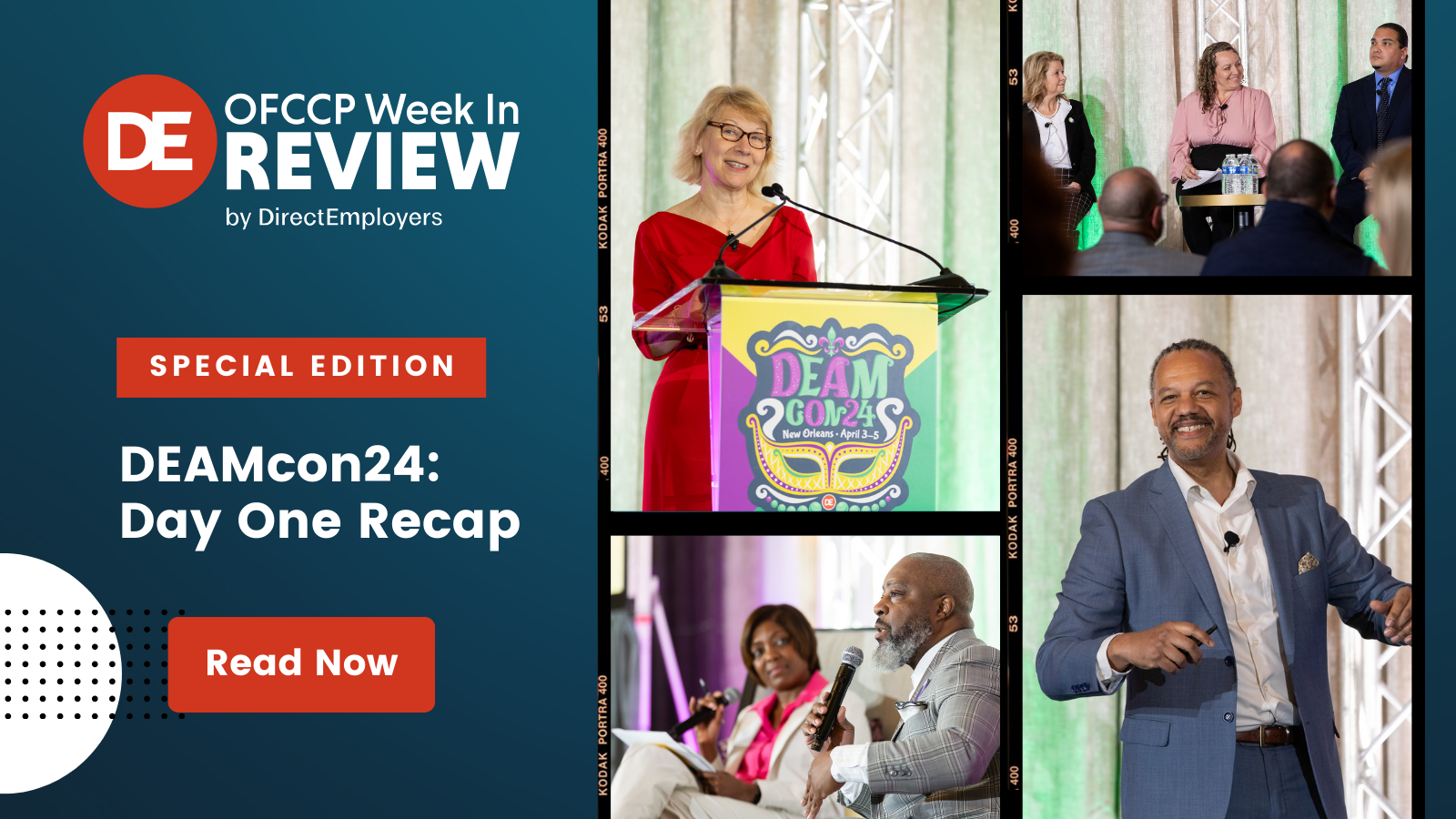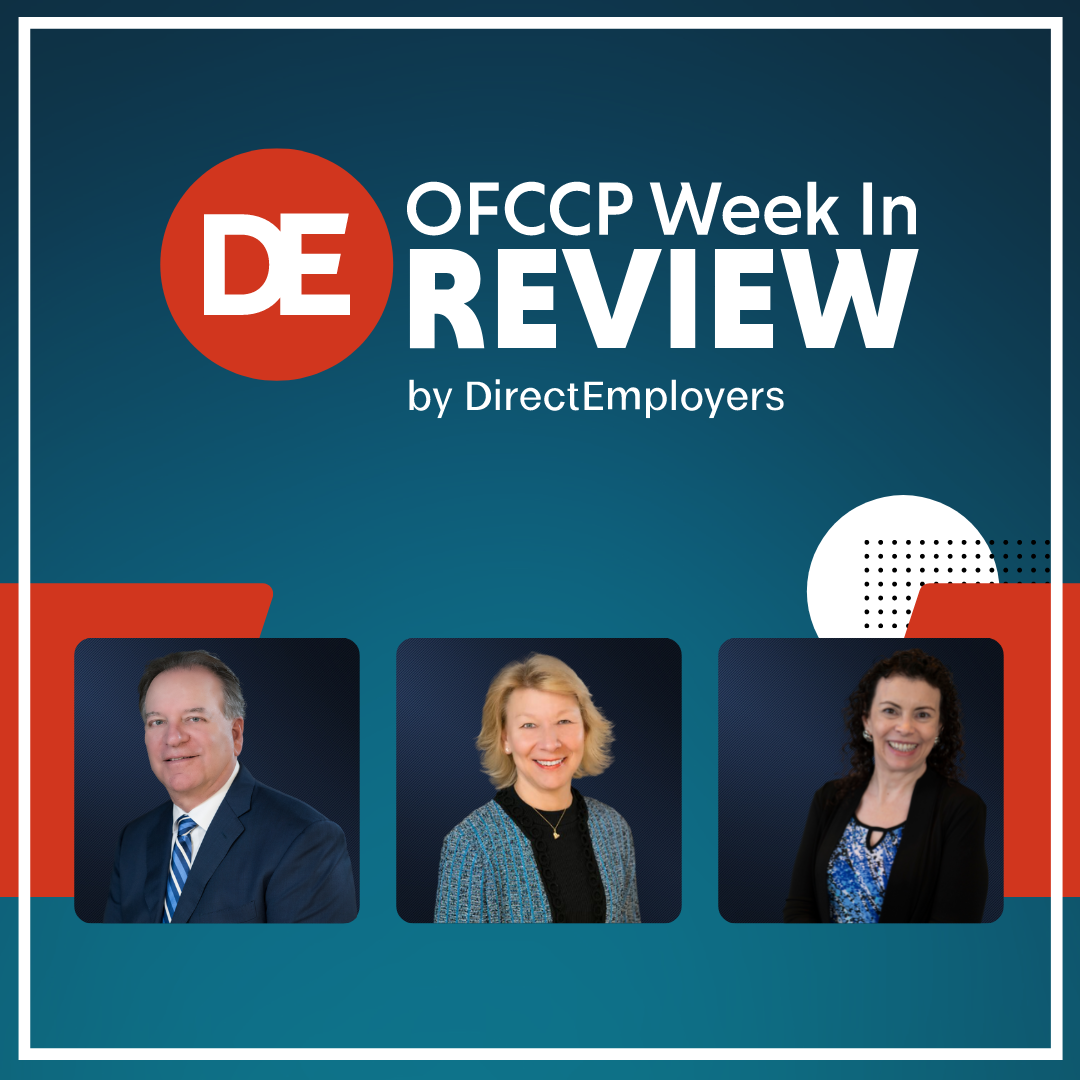
- EEOC Seeks to Jump into Job Seeker’s AI Bias Lawsuit: New Technology Scares It
- Congressional Resolution to Nullify NLRB’s Joint Employer Final Rule Headed for Certain Presidential Veto
- U.S. Supreme Court Unanimously Ruled Transportation Workers Not Required to Arbitrate Wage Claims Regardless of Industry
- EEOC Announced Finalized Regulations to Implement Pregnant Workers Fairness Act
- In Brief
- New Publications
- Looking Ahead: Upcoming Date Reminders
The DEAMcon24 Day One Recap is Live!
In addition to today’s OFCCP Week in Review, our authors have also published the first of three special edition blog posts to recap DirectEmployers 2024 Annual Meeting & Conference (DEAMcon24) which took place April 3rd-5th in New Orleans, Louisiana. Be sure to check out our Day One Recap for important details from each session that took place during the conference!
Tuesday, April 9, 2024: EEOC Seeks to Jump into Job Seeker’s AI Bias Lawsuit: New Technology Scares It
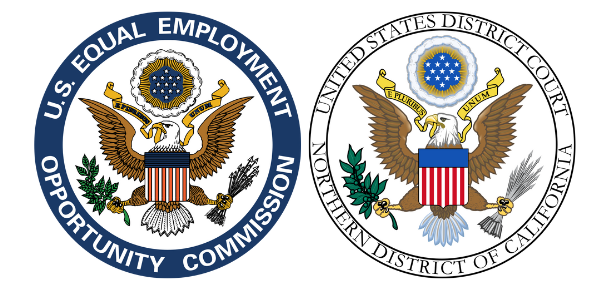
In February, we reported that the potential lead plaintiff in the case, who seeks class action certification, filed an amended complaint alleging that Workday violated federal anti-discrimination laws by providing companies with algorithm-based applicant screening, or “AI” (“Artificial Intelligence”) tools that discriminated against him and other similarly situated job applicants based on race, age, and disability. The plaintiff claimed that, as an African American man over the age of forty with anxiety and depression, he applied to 80 to 100 jobs with companies that use Workday’s screening tools and did not receive a single job offer.
On March 12, Workday filed a motion to dismiss the amended complaint, asserting that the company is not covered by the statutes at issue – of Title VII, the Age Discrimination in Employment Act, and/or the Americans with Disabilities Act – because it merely screens job seekers rather than procuring them.
Title VII gives the Commission the authority to commence or intervene in litigation against private-sector employers to enforce the nation’s employment discrimination laws. On Tuesday, the EEOC asked the court for permission to file its amicus brief. On Thursday, Judge Rita F. Lin of the U.S. District for the Northern District of California (San Francisco) set a May 7, 2024, hearing date to address the EEOC’s request.
“Workday is a type of intermediary that Congress meant federal anti-discrimination laws to cover,” the EEOC asserted in its brief. Summarizing its arguments, the agency wrote:
“First, Mobley has plausibly alleged that Workday operates as an employment agency because it purportedly engages to a significant degree in screening and referral activities that have long been associated with traditional employment agencies. Second, Mobley has plausibly alleged that Workday is an indirect employer because it purportedly exercises significant control over his and other applicants’ access to employment opportunities with Workday’s employer-clients. Third, and finally, Mobley has plausibly alleged that Workday is an agent of employers because employers have purportedly delegated authority to Workday to make at least some hiring decisions.”
For additional insights on this case, see our discussions here and here.
Wednesday, April 10, 2024: Congressional Resolution to Nullify NLRB’s Joint Employer Final Rule Headed for Certain Presidential Veto
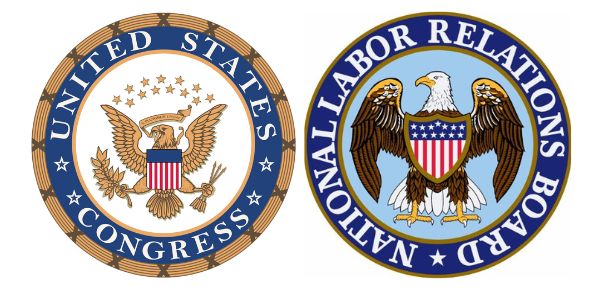
Wednesday’s Senate vote was 50-48, with Senators Joe Manchin (D-WV), Kyrsten Sinema (I-AZ), and Angus King (I-ME) voting in favor. Senators Mike Lee (R-UT) and Bob Menendez (D-NJ) did not vote. The House passed the resolution on January 12, by a vote of 206-177 (with 50 Representatives not voting).
Biden stated in January that he would veto the measure if it passed Congress. As of our WIR deadline, the President had not taken any action on the measure.
In November 2023, the NLRB extended the original effective date of the Final Rule by two months, from December 26, 2023, to February 26, 2024 (see our story here).
WIR readers will likely recall that last month, U.S. District Judge J. Campbell Barker of the Eastern District of Texas (in Tyler) struck down the Rule (our story is here). The NLRB has not yet announced its plans regarding the ruling. Following the court ruling last month, the Board stated it was “actively considering next steps in this case.”
Should President Biden veto the measure, both houses of Congress would have to override the veto by a 2/3rds vote in each Chamber (House and Senate), starting with the House of Representatives which first passed the Resolution. A 2/3rds (66%) veto override vote in either chamber is highly unlikely to occur here since the Resolution condemning the NLRB’s new Rule passed by a majority vote in the House by only 54% (of those voting) and by only 51% (of those voting) in the Senate.
Despite the unpopularity of the NLRB’s new Rule designed to upend long established corporate law to bolster union rights, employer hopes to stop the Board’s Rule now lie either with the Courts or on hopes that an equally resolved Congress next year would pass a statute to the same effect as its current Resolution to then be signed into law by a different President.
Friday, April 12, 2024: U.S. Supreme Court Unanimously Ruled Transportation Workers Not Required to Arbitrate Wage Claims Regardless of Industry
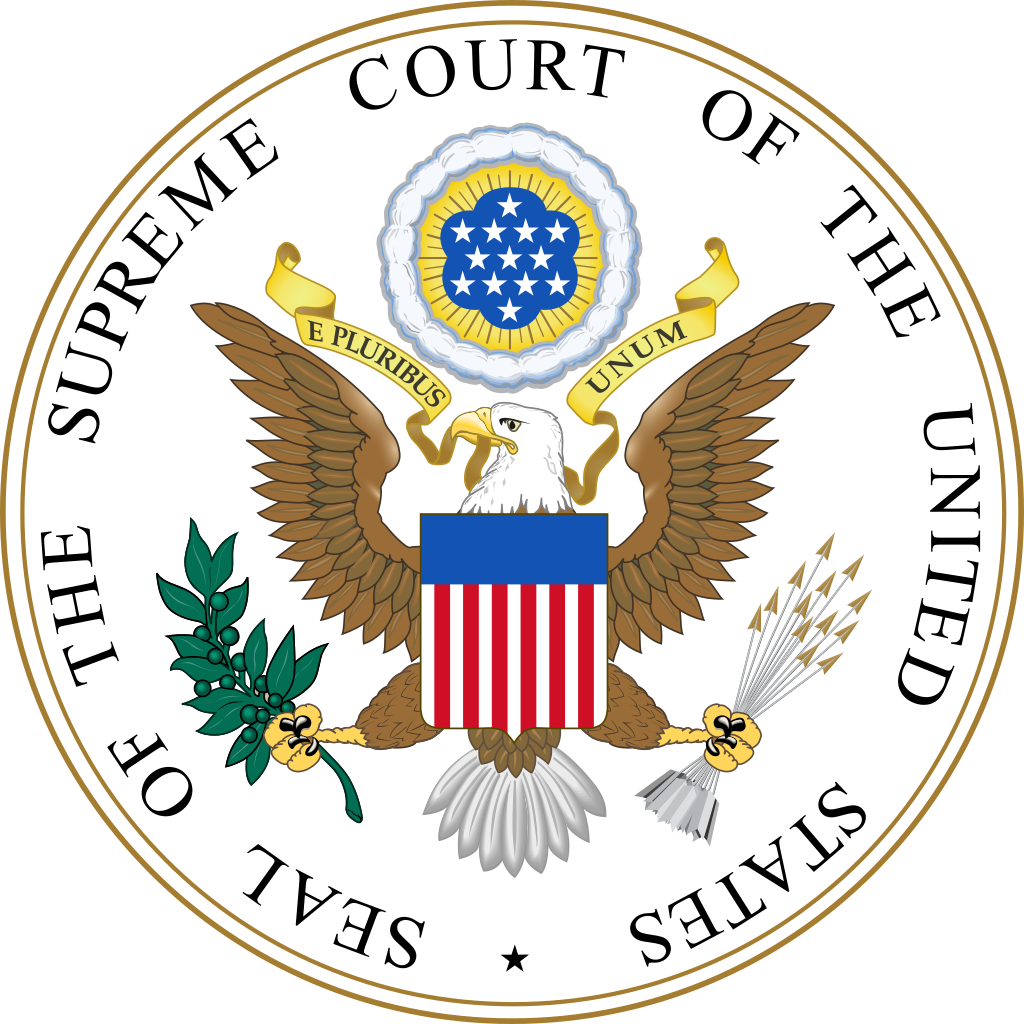
EDITOR’s NOTE: Employers often prefer arbitration to state or federal court venues because they are: (a) confidential (the pleadings and the arbitration trial itself are not accessible to the public), (b) tend to proceed more quickly than the increasingly overburdened courts, and (c) can often eliminate class action claims (form can dictate substance).
Section 1 of the FAA exempts “contracts of employment of seamen, railroad employees, or any other class of workers engaged in foreign or interstate commerce.” The truck drivers argued that they fit into this exemption because they are transportation workers. However, the employers asserted that the truck drivers were not transportation workers because they worked in the bakery industry.
In Friday’s ruling, Chief Justice John Roberts, writing for the Court, cited its June 6, 2022, unanimous (8-0) ruling in Southwest Airlines v. Saxon. There, the Court held that ramp supervisors for Southwest Airlines – who physically load and unload cargo on and off airplanes that travel nationwide – fell under the FAA’s Section 1 exemption because they belonged to a covered “class of workers engaged in foreign or interstate commerce.” (See our story here.) The Saxon decision was yet another ruling in which the Court based its decision on the “plain meaning” of the statute (i.e., the FAA). In Saxon, the Court “expressly declined to adopt an ‘industrywide’ approach of the sort that [the employers’ argued in the present case],” Justice Roberts pointed out.
Reversing a Second Circuit Court of Appeals ruling of May 5, 2022, the High Court noted that the Second Circuit “fashioned its transportation-industry requirement without any guide in the text of [Section 1 or Supreme Court precedents].” Consequently, the appeals court had to figure out for itself what constituted a “transportation industry.” The Second Circuit decided that an entity would be considered within the transportation industry if it “pegs its charges chiefly to the movement of goods or passengers” and its “predominant source of commercial revenue is generated by that movement.”
But Justice Roberts wrote that the Second Circuit’s approach would lead to excessive litigation:
“The application of such a test, however, would often turn on arcane riddles about the nature of a company’s services. Does a pizza delivery company derive its revenue mainly from pizza or delivery? Do companies like Amazon and Walmart—which both sell products of their own and transport products sold by third parties—derive their revenue mainly from retail or shipping? Extensive discovery might be necessary to explore the internal structure and revenue models of a company before deciding a simple motion to compel arbitration. Mini-trials on the transportation-industry issue could become a regular, slow, and expensive practice in FAA cases.” [citations omitted]
Finally, the Court rejected the employers’ arguments that its interpretation would “sweep too broadly.” As the Court held in Saxon, a transportation worker is one who is “[actively] ‘engaged in transportation’ of . . . goods across borders via the channels of foreign or interstate commerce.” Thereby, under the Court’s interpretation, a transportation worker must at least play a direct and necessary role in the free flow of goods across borders, appropriately narrowing the scope of this provision.
Monday, April 15, 2024: EEOC Announced Finalized Regulations to Implement Pregnant Workers Fairness Act
Official Publication Slated for Friday, April 19
Regulations Will Take Effect Mid-June

The final rule was approved by a majority vote of the Commission on April 3, 2024. The following day, the White House Office of Management and Budget (“OMB”) approved it.
The PWFA equates pregnancy with a disability for the first time by requiring a covered entity to provide reasonable accommodations to a qualified employee’s or applicant’s known limitation(s) related to, affected by, or arising out of pregnancy, childbirth, or related medical conditions, unless the accommodation will cause an undue hardship on the operation of the business of the covered entity. This statute took effect on June 27, 2023. However, on February 27, 2024, U.S. District Judge James Wesley Hendrix in the Northern District of Texas (Lubbock) blocked its enforcement in the state of Texas (see our story here).
The statute provided that the EEOC must issue finalized regulations to implement it by December 29, 2023. Two days before this statutory deadline, the EEOC submitted its finalized regulations to the OMB, but the OMB took over three months to approve it. Whether the delay in issuing the finalized regulations after the statutory deadline violated Congress’ intent will become of no moment once the Commission officially publishes its Final Rule in the Federal Register on Friday. For additional background, see our stories here, here, here, here, here, and here.
We will have a more detailed analysis of the Final Rule in next Monday’s edition of the WIR.
In Brief
Tuesday, April 9, 2024: Bipartisan House Bill Would Bar “Arbitrary” Experience and/or Education Requirements for Certain Federal Contractor Jobs
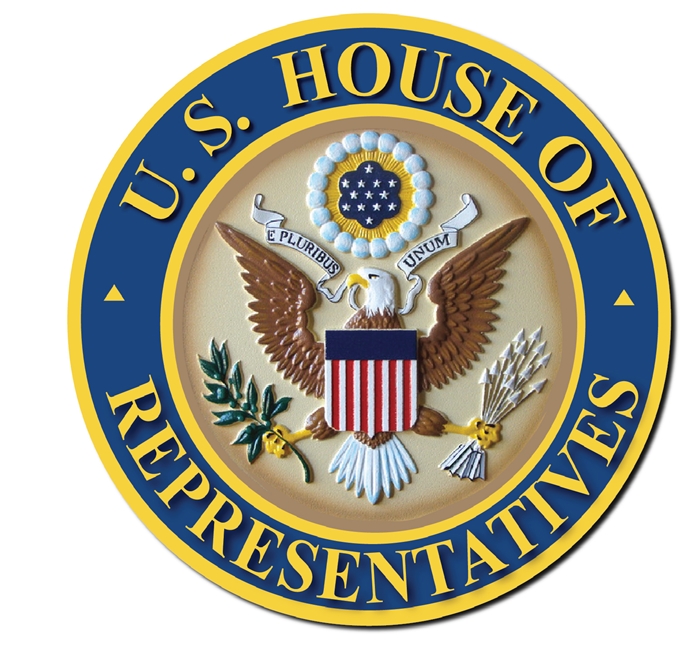
Representatives Nancy Mace (R-SC) and Raja Krishnamoorthi (D-IL) introduced in the U.S. House of Representatives the bipartisan ‘‘Allowing Contractors to Choose Employees for Select Skills Act’’ (“ACCESS Act”). The measure – H. R. 7887 – is aimed at removing unwarranted college degree requirements from some federal contractor jobs by requiring contractors to justify any minimum experience and education requirements for such jobs. It “would eliminate arbitrary education and experience requirements that exclude skilled workers from participating in government contracts, opening the door to more diverse and qualified candidates to apply for government positions,” according to a press release from Congressman Krishnamoorthi.
Specifically, the measure as introduced would provide:
“A solicitation may not set forth any minimum experience or educational requirement for proposed contractor personnel in order for a bidder to be eligible for award of a contract unless the contracting officer includes in the solicitation a written justification that explains why the needs of the executive agency cannot be met without any such requirement and clarifies how the requirement ensures the needs are met.”
Tuesday, April 9, 2024: Education Department Referrals to EEOC Need Improvement, GAO Report Concluded
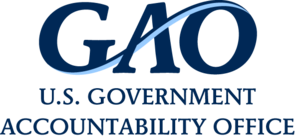
Background: Current or prospective higher education faculty may file complaints of employment discrimination with either the DOE or EEOC. The DOE refers to the EEOC almost all of the complaints it receives. While about 90 percent of DOE’s referrals to EEOC are required to be sent within 30 days, these referrals have, on average, been late for more than a decade, the GAO found. Moreover, the EEOC cannot confirm it received all the DOE’s referrals.
Accordingly, the GAO made two recommendations. First, the GAO directed the DOE to track the timing of employment discrimination complaint referrals to the EEOC and use that information to develop a plan to reduce referral delays. The DOE agreed with this recommendation. Second, the GAO directed the EEOC to develop a protocol to ensure it receives and processes all complaint referrals from the DOE. The EEOC neither agreed nor disagreed with this recommendation, but acknowledged the importance of processing all referrals, and is taking related action, including adopting an interim protocol to ensure receipt of all complaint referrals from the DOE.
Wednesday, April 10, 2024: US DOL WHD’s Publication of its Overtime Final Rule Imminent
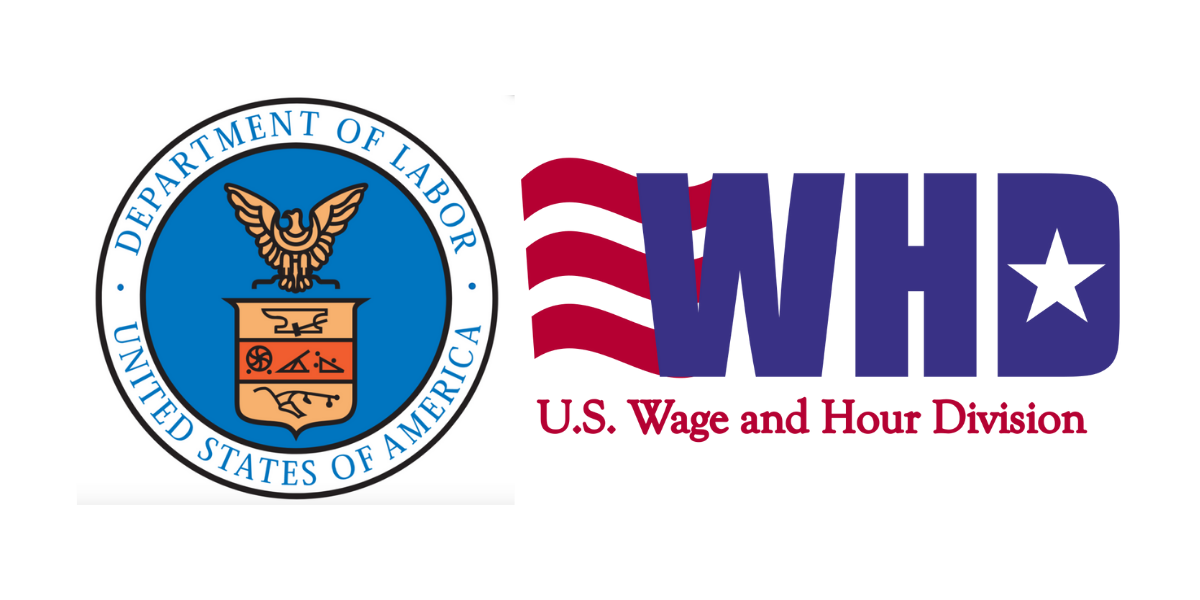
The Final Rule will yet again revise the regulations at 29 CFR §541, which implement the exemption of bona fide executive, administrative, and professional employees from the Fair Labor Standards Act’s minimum wage and overtime requirements. Based on the WHD’s proposed version of the Rule, the Final Rule will likely increase the standard salary level necessary for exemption from the current $35,568 to $55,068 annually and the highly compensated employee (“HCE”) total annual compensation threshold from the current $107,432 level to $143,988. It will also likely provide an automatic updating (indexing) mechanism to allow for the timely and efficient updating of all the thresholds to reflect the current earnings data.
The WHD submitted its Final Rule for OMB review on March 1 (our story is here). The agency is right on schedule to meet its April 2024 target date set forth in the Fall 2023 Regulatory Agenda.
New Publications
Monday, April 1, 2024: U.S. Department of Labor’s Wage and Hour Division updated its Prevailing Wage Resource Book in light of its Final Rule, Updating the Davis-Bacon and Related Acts Regulations, which took effect on October 23, 2023,
Monday, April 8, 2024: U.S Census Bureau posted a blog on “What Updates to OMB’s Race/Ethnicity Standards Mean for the Census Bureau”
Friday, April 11, 2024: NLRB published non-substantive amendments to its “Quickie Elections” Direct Final Rule to correct certain cross-references; see here for our August 2023 story on that Final Rule
Looking Ahead:
Upcoming Date Reminders
There are two NEW items added to our calendar this week:
November 2023: EEOC’s target date (now overdue) to publish its NPRM to amend its regulations on exemptions to certain recordkeeping and reporting requirements (RIN: 3046-AB28)
December 29, 2023: Statutory deadline (now overdue) for EEOC to finalize regulations to enforce the Pregnant Workers Fairness Act (RIN: 3046-AB30); NEW On April 4, OMB approved the Final Rule, meaning publication is imminent
December 2023: U.S. OSHA’s current target date (now overdue) to publish its Final Rule on Occupational Exposure to COVID-19 in Healthcare Settings (RIN: 1218-AD36); On February 9, 2024, OSHA submitted its Final Rule to OMB for review and approval
March 11, 2024: Previous effective date of NLRB’s Final Rule on Standard for Determining Joint-Employer Status under the NLRA (per U.S. District Judge’s order previous February 26, 2024, effective date extended); On March 8, 2024, a U.S. District Judge vacated this Final Rule – stay tuned for further developments
March 2024: EEOC’s target date for proposal to amend its regulations regarding the electronic posting of the “Know Your Rights” Poster (RIN: 3046-AB29)
March 2024: U.S. NLRB’s target date for its Final Election Protection Rule (RIN: 3142-AA22)
April 15, 2024: THIS IS TODAY! Comments due on EEOC’s Interim Final Rule to Amend Procedural & Administrative Regulations to Include the Pregnant Workers Fairness Act; Corrections Notice here
April 15, 2024: THIS IS TODAY! Comment deadline on US DOL VETS request to renew, without change, currently-approved VETS-4212 reporting requirement
April 19, 2024: Due date for comments on U.S. Justice Department’s Advance Notice of Proposed Rulemaking (“ANPRM”) on Provisions Regarding Access to Americans’ Bulk Sensitive Personal Data and Government-Related Data by Countries of Concern.
April 23, 2024: Deadline for comments on OFCCP’s proposal to Resurrect, with Changes, Monthly Employment Utilization Report for Construction Contractors
April 26, 2024: Comments due on OFCCP’s Proposed Changes to its Construction Compliance Review Scheduling Letter, Itemized Listing, and Construction Contract Award Notification Requirement Form
April 26, 2024: Comment deadline for US DOL VETS request to extend – without change – the Information Collection Requirement for its HIRE Vets Medallion Program
April 29, 2024: Responses due to OMB’s Request for Information on the responsible procurement of artificial intelligence in government
April 30, 2024: Deadline to apply for 2024 HIRE Vets Medallion Award – https://www.hirevets.gov/
April 30, 2024: Opening Date for 2023 EEO-1 Survey Component 1 Data Collection
April 2024: U.S. DOL WHD’s current target date for its Final Rule on Defining and Delimiting the Exemptions for Executive, Administrative, Professional, Outside Sales, and Computer Employees (Overtime Rule) (RIN: 1235-AA39); NEW On April 10, 2024, OMB approved the Final Rule, clearing the way for publication
May 13, 2024: Deadline for comments on US DOL’s Request for Information seeking public input on whether to revise the list of Schedule A job classifications that do not require permanent labor certifications to include occupations in Science, Technology, Engineering & Mathematics (“STEM”) & other non-STEM occupations; previous February 20, 2024 deadline extended
May 15, 2024 (11:00 – 5:30 EST): US DOL WHD online seminar on prevailing wage requirements for federally-funded construction projects; register here
May 2024: FAR Council’s target date for its Final Rule to Prohibit TikTok [or any successor application or service developed or provided by ByteDance Limited] on Federal Government Contractor Devices (RIN: 9000-AO58); the Interim Rule is here
June 4, 2024: Deadline for 2023 EEO-1 Survey Component 1 Data Collection
June 6, 2024 (11:00 – 11:45 am CDT): OFCCP webinar for federal contractors on its pre-complaint inquiry process for workers
July 1, 2024: OFCCP’s asserted “deadline” for covered federal Supply and Service contractors & subcontractors to certify, via OFCCP’s online Contractor Portal, that they have developed & maintained Affirmative Action Programs for each establishment or functional unit
August 29, 2024 (11:00 – 5:30 EST): US DOL WHD online seminar on prevailing wage requirements for federally-funded construction projects; register here
September 2024: OFCCP’s current target date for its Notice of Proposed Rulemaking to “Modernize” Supply & Service Contractor Regulations (RIN: 1250-AA13)
September 2024: OFCCP’s current target date for its Final Rule on “Technical Amendments” to Update Jurisdictional Thresholds & Remove Gender Assumptive Pronouns (RIN: 1250-AA16)
September 2024: EEOC’s anticipated date for amending its FOIA procedures to add fees for electronic disclosure of records (RIN: 3046-AB20).
September 2024: U.S. DOL WHD’s target date to publish an NPRM on “Employment of Workers With Disabilities Under Special Certificates” (Subminimum Wage Rule) (RIN: 1235-AA14)
May 21 – May 23, 2025: DEAMcon25 in Scottsdale, Arizona
THIS COLUMN IS MEANT TO ASSIST IN A GENERAL UNDERSTANDING OF THE CURRENT LAW AND PRACTICE RELATING TO OFCCP. IT IS NOT TO BE REGARDED AS LEGAL ADVICE. COMPANIES OR INDIVIDUALS WITH PARTICULAR QUESTIONS SHOULD SEEK ADVICE OF COUNSEL.
SUBSCRIBE.
Subscribe to receive alerts, news and updates on all things related to OFCCP compliance as it applies to federal contractors.
OFCCP Compliance Text Alerts
Get OFCCP compliance alerts on your cell phone. Text the word compliance to 18668693326 and confirm your subscription. Provider message and data rates may apply.

